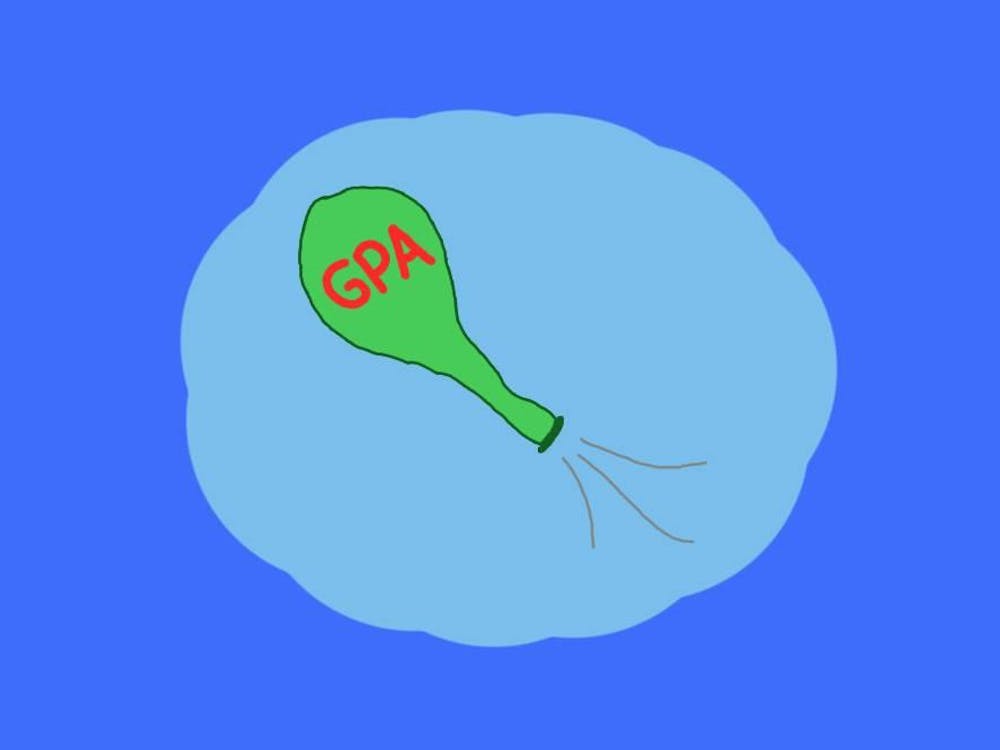THIS COLUMN isn't about politics at all. Well, that's not exactly true, but I didn't want you to stop reading after the first sentence. You would have turned the page if I had told you it was about politics, wouldn't you?
Admit it - you get tired of reading about politics. After all, it is that time again - news and discussions about political campaigns are everywhere these days, and there's still over a year until the national election. You may be saying, "Politicians are corrupt, dishonest, spend way too much time arguing and not enough time getting things done, and they don't really care about the people they represent." But while these perceptions may be the reason that people don't care about politics, it is also very easy to see how these perceptions are formed by people's indifference toward politics.
Apathy increasingly has characterized the electorate in recent years. According to the Federal Elections Commission Web site, voter turnout in the 1996 presidential election was 49 percent - the first time ever that turnout has been below 50 percent. In the 1998 congressional elections, turnout was a paltry 36 percent.
Elected officials have a number of objectives, but one of their most important goals is staying in office. The pursuit of all of their other goals depends on reelection.
An elected official must execute his duties in a way that satisfies those who elected him, and those who will choose whether or not to reelect him. In a political climate with such widespread apathy, this means politicians are forced to be responsive only to a minority of the population. Regardless of how well this minority's interests parallel the majority's interests, the restraint on politicians to remain responsive to the majority - election - is weakened. Supposedly, we have a system of majority-rule government in this country. But the reality is that a majority of voters make the decisions, not a majority of the people. At present, these are potentially very different groups of people.
Voter apathy is not equally common across the electorate. For instance, those in the 18-24 age group only turned out at 32 percent in 1996, down from 43 percent in 1992. In contrast, 55 percent of those between the ages of 25 and 64, and 67 percent of those over 65 voted in 1996 (www.fec.gov/pages/electpg.htm).
It would be politically stupid for a politician to care about a segment of the population that doesn't care about him. Regardless of how much a representative may want to spend his time improving education and working on other issues important to young people, he can't do that and still expect to be around next term if people our age vote only half as frequently as our parents and grandparents.
The increased pressure to remain in office, combined with the shrinking voting population, empowers special interests. If the percentage of voters in the population decreases, there are fewer people to oppose the influence of a well-organized minority group that can offer money and blocks of votes to political candidates.
The result of these forces is a downward spiral. People don't care about politics, so politicians cater to a smaller segment of the population, which increases the influence of special interests. As a result, people see a system that is increasingly shaped by interest groups. They may feel that it less frequently addresses their concerns, and that the system no longer is responsive to the average American. Because of this, people care less about politics. And the cycle continues.
The cycle will break only if Americans - and particularly those of college age - start to care about government. Most people will tell you they aren't happy with present circumstances. But things won't change unless electing officials becomes a majority activity, and politicians are held accountable by a majority of the people, instead of the minority that currently bothers to vote.
You may not buy the argument that voting is a privilege and a civic responsibility, and that it is your duty to vote. Fine. You don't necessarily have to be patriotic or altruistic to justify voting. Be selfish instead. If you vote, you'll have a voice in politics, politicians will be responsive to you, and they will care more about what you care about.
The alternative is to continue to be apathetic, to complain about the sorry state of politics but be unwilling to do anything about it. So far, this strategy has not been disastrous. By all measures, the average American's quality of life is higher than it has been in years. The problems of our political system haven't directly disrupted or damaged daily life for most people. But betting that this will continue to be true is a gamble, and one I am not willing to take. Are you? Are the risks of this gamble worth not taking the time to vote? You'll have to decide.
(Bryan Maxwell is a second-year College student.)




